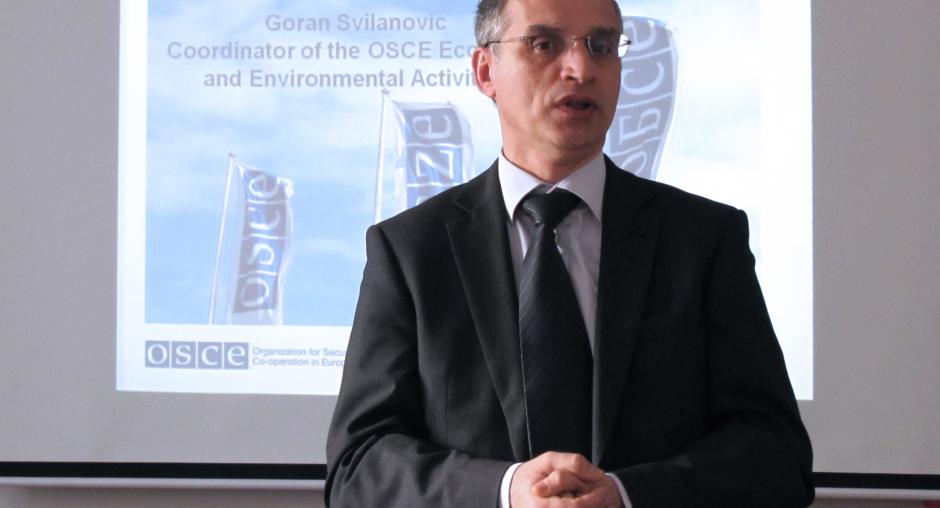OSCE Academy in Bishkek launches module on economic and environmental field

BISHKEK, 26 March 2012 – Twenty-four students from Central Asia and Afghanistan – enrolled in the OSCE Academy’s newly launched Masters programme in Economic Governance and Development – started today a one-week teaching module devoted to the OSCE’s work in the economic and environmental field.
Goran Svilanović, the Co-ordinator of OSCE Economic and Environmental Activities, opened the course, emphasizing the inter-connectivity between good governance and security: “Good governance of the public and private sectors together with strong democratic institutions are essential for economic growth. Stable states with transparent and accountable policies attract foreign and domestic investment, enabling governments to reduce poverty and inequality, increase social integration and protect the environment.”
“The Economic and Environmental Dimension of the OSCE reflects the most current governance issues relevant for this region,” added Maxim Ryabkov, the Director of the OSCE Bishkek Academy.“This programme therefore offers a great opportunity for recent graduates and young professionals in Central Asia and Afghanistan to enhance their knowledge about the vast range of issues the OSCE deals with in its second dimension.”
The interactive teaching module – which combines theory with practical examples provided by OSCE field operations – covers the inter-linkages between sustainable development and security; preventing and countering money laundering and the financing of terrorism; promoting good economic governance and combating corruption; and intensifying co-operation in the areas of energy and water management.
The OSCE Academy’s Masters programme in Economic Governance and Development is a 15-month graduate course that offers an interdisciplinary curriculum in economics, governance and development, focusing on the Central Asian context. The programme is designed for recent graduates and young professionals seeking a career related to regional and global economic governance and development.
It is supported by the OSCE and the Governments of Austria, Norway and the US in particular. International partner institutions, including the Norwegian Institute of Foreign Affairs and the Advisory Council of the OSCE Academy, provided assistance through advising on the curriculum, teaching and supervision.
